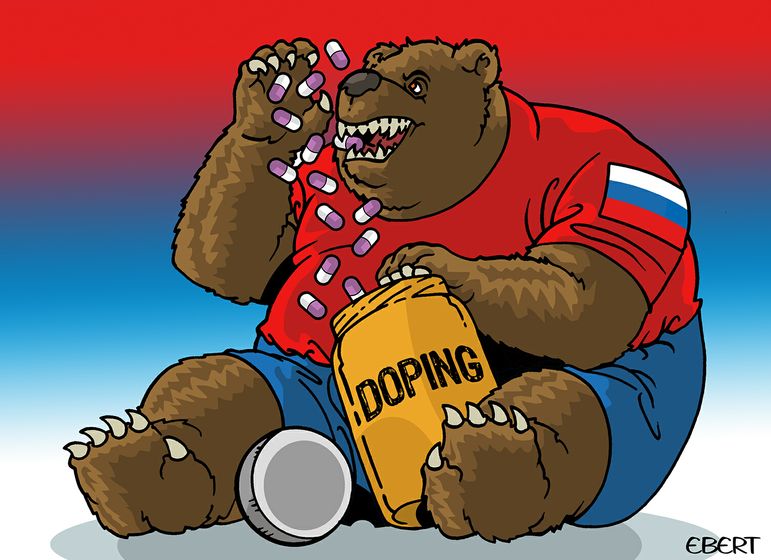Were you as shocked as I was yesterday when the International Olympic Committee (IOC) publicly admitted that there’s a doping problem in Russia? Didn’t you always think, like I did, that the Olympics are where clean and honest sport comes together in a show of strength and fair play? Now I know the truth: there’s doping at the Olympics. Really?
My apologies for my rather sarcastic comments above. Honestly, I am not surprised at all by yesterday’s announcement from the IOC that Russia has been banned from the 2018 winter games in Pyeongchang, South Korea. It’s not because a few Russian athletes were found guilty of doping. Doping is a state-run industry in Russia, and after years of investigation the hammer has finally come down.
I have been reading stories about just how deep doping is entrenched in Russian sport. There is some sick desire to always win. Young athletes must be living in a culture where they are forced to break the rules and destroy their bodies just to be number one. It saddens me to know that there are probably hundreds, maybe thousands, of talented young Russian athletes whose dreams have just been crushed.
Do 16-year-old skaters and 21-year-old skiers deserve to be thrown out of the Olympics before they even have a chance to compete? Did these athletes scheme and plan behind the scenes so they can stand on the podium in February? I doubt it. Unfortunately, they are part of a very broken system that demands cheating in order to win.
And the IOC made it clear this must stop. Doping is unacceptable, ever. It’s terrible that hundreds of young, hard-working, talented Russian athletes will not be allowed to compete at the Olympics in a few months. They are caught in what may seem like an unfair system. But the IOC had no choice. The Russian Olympic Committee didn’t just break the rules for years, it laughed at them and stomped on them.
I am intrigued by the IOC’s attempt to reach out to individual athletes from Russia, to separate individuals from their country that sponsors doping. I see this as a message to these young athletes, in particular those who have managed to stay out of the doping controversy (dare I say, are verifiably clean?) that they are welcome at the 2018 Winter Olympics. If these individuals qualify to compete (based on criteria outlined by the IOC), they are welcome, but not as Russians.
These athletes won’t see a Russian flag and they won’t hear the Russian anthem. They will participate as athletes who do not represent any country. But if they agree to these rules and compete using only their abilities and relying on hard work, then I believe they will be warmly accepted by the Olympic community.
IOC President Thomas Bach said it well yesterday, when he noted that the long-time Russian doping represented an “unprecedented attack on the integrity of the Olympic Games.” So, I hope that integrity returns to the Olympics. This is just a start.


